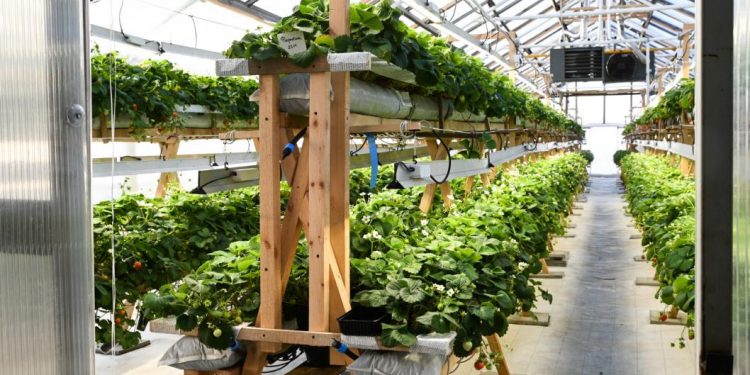A revolutionary achievement was that agronomists at the Naturika greenhouse complex in the Tyumen region grew an impressive 50,000 strawberry bushes. This ambitious project includes 15 varieties of strawberries, including remontant ones, which bear fruit over a long period, often producing up to four waves of harvest. According to the Department of Agro-Industrial Complex of Tyumen, this innovative approach makes it possible to ensure a stable supply of fresh strawberries throughout the year, which is a significant improvement in the region’s agricultural production.
The greenhouse industry’s commitment to sustainability and innovation is evident in their growing methods. Strawberries are grown in peat-based soil, which closely mimics natural growing conditions. Organic fertilizers are used to improve soil fertility, ensuring strawberries are nutritious and environmentally friendly. In addition, bumblebees are used for pollination, which not only increases crop yields but also supports biodiversity in the greenhouse ecosystem.
Naturika’s success in growing strawberries is complemented by its efforts in blueberry propagation. This season, the farm has prepared several varieties of blueberry seedlings, aimed both at updating its own plantations and at providing local gardeners with quality plants. This dual approach of internal renewal and external sales strengthens the local agricultural economy and promotes sustainable practices among regional farmers.
Recent reports show that Naturika’s greenhouses produce about 2 tons of strawberries annually. Currently, about 3,500 strawberry bushes are actively harvested. The ability to grow strawberries year-round not only satisfies local demand, but also reduces dependence on imported berries, supporting local food security and reducing carbon emissions associated with long-distance transportation.
The success of the Naturika greenhouse complex in Tyumen highlights the potential of advanced horticultural technologies and sustainable practices in modern agriculture. By focusing on both high-quality harvests and environmental stewardship, Naturika sets a powerful example for farmers and agronomists around the world. The integration of organic fertilizers and natural pollinators, along with a focus on continuous production, demonstrates a viable path forward to sustainable agriculture.










